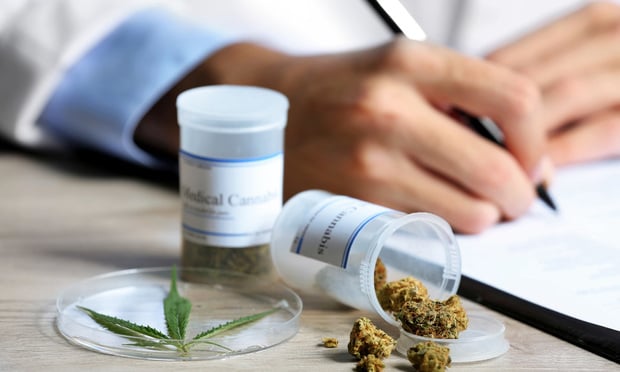 "Some states have standards for identifying marijuana impairment on the job. However, those standards differ from state to state," says Laura Kersey, NCCI's executive director, regulatory & legislative analysis. (Credit: Africa Studio/Adobe Stock)
"Some states have standards for identifying marijuana impairment on the job. However, those standards differ from state to state," says Laura Kersey, NCCI's executive director, regulatory & legislative analysis. (Credit: Africa Studio/Adobe Stock)
With the majority of states now having some form of medical marijuana laws on the books and 19 allowing recreational adult use, questions remain on how workers' compensation systems should address the myriad of arising issues.
Recommended For You
Want to continue reading?
Become a Free PropertyCasualty360 Digital Reader
Your access to unlimited PropertyCasualty360 content isn’t changing.
Once you are an ALM digital member, you’ll receive:
- Breaking insurance news and analysis, on-site and via our newsletters and custom alerts
- Weekly Insurance Speak podcast featuring exclusive interviews with industry leaders
- Educational webcasts, white papers, and ebooks from industry thought leaders
- Critical converage of the employee benefits and financial advisory markets on our other ALM sites, BenefitsPRO and ThinkAdvisor
Already have an account? Sign In Now
© 2025 ALM Global, LLC, All Rights Reserved. Request academic re-use from www.copyright.com. All other uses, submit a request to [email protected]. For more information visit Asset & Logo Licensing.








